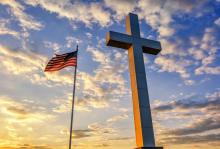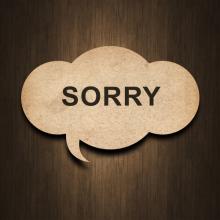apologies

I SPENT MOST of my childhood in a Methodist church, but I didn’t learn the liturgy. It was sung in Korean, and as soon as I started kindergarten, I exchanged fluency in my original language for assimilation. My parents did their best to teach my sister and me as much about our language and customs as they could, but they had to teach us in between their own assimilation for survival. It wasn’t until years later, when I was on a campus ministry team that sang from hymnals and overhead projectors, that I connected the Korean words of my church upbringing with a Korean-American faith.
As I’ve begun working through the personal cost of assimilation, I’ve looked at the price the church is paying for its own assimilation. At the sound of that, you may think that the rest of this column focuses on legalized abortion, same-sex marriage, and maybe even immigration and border security. Well, it does and it doesn’t.
I wonder if white evangelicalism has thought of itself as the underdog, the persecuted, and the eventual white savior in order to assimilate into a Western culture that glorifies winning, beating all odds, and rising as the unexpected hero. How can this country simultaneously be a Christian nation and persecute Christians? Neither is accurate, but both claims are invoked in modern politics and the rhetoric of white evangelicalism—where white evangelicals assimilate into a blind patriotism that ignores history and orthodoxy.

I had a series a while back about the Christian Cliches that we should drop from our lexicon, and since then I’ve had people ask what they should be saying instead. So here’s a list of handy phrases to help bring followers of Jesus into a post-Christendom, 21st-century world.

Jesus never said “I’m sorry.” Sure, when he was being crucified, he cried out: “Father, forgive them, for they do not know what they are doing (NIV).” But technically he was apologizing on behalf of others and not for a sin he actually committed.
Apologizing is one of the only Christian virtues Jesus didn’t do himself.
Maybe this is why Christians rarely hear sermons or teachings about apologizing to non-Christians. Mainstream Christian culture teaches the opposite: believers are always right. The inner-circle perception is that Christians don’t make mistakes — only non-Christians do.
As children we’re taught to apologize for lying, stealing, hitting our little brother, budging in line, cheating on a test, and swearing (among other things). Most people with common decency apologize to each other for these trivial wrongdoings, but when it comes to spiritual things — especially on a widespread and corporate level — Christians rarely apologize to people beyond their faith.
As many of you know, several Asian-American leaders and I have been in dialogue with both the authors of